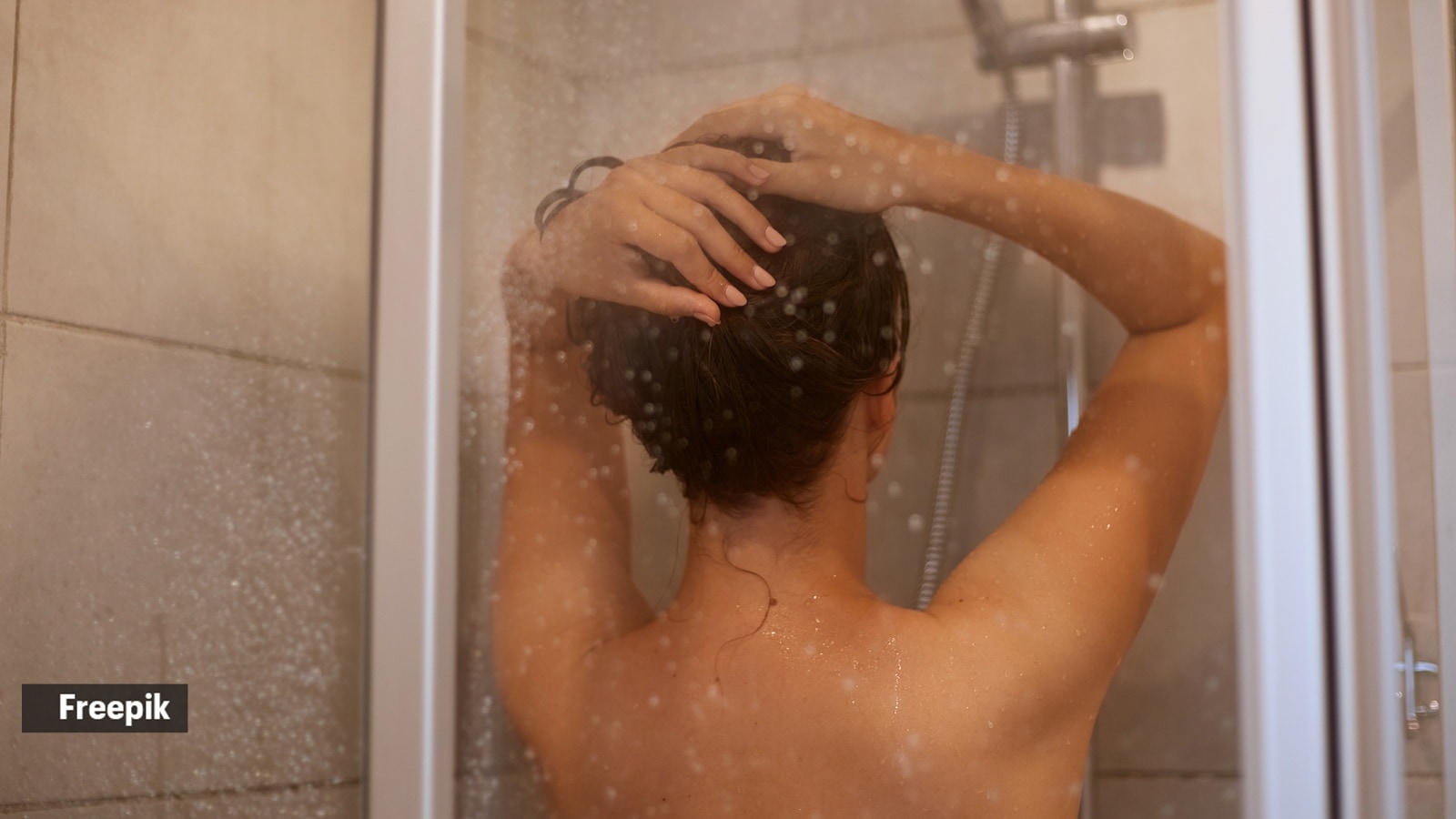📣 For more lifestyle news, click here to join our WhatsApp Channel and also follow us on Instagram
‘There is a chance of electric shock when…’: Cardiologist clarifies whether you should keep your geyser on while bathing
Regular servicing of the geyser, using proper earthing, and checking the wiring are also very important. People should avoid touching metal taps, switches, or the geyser directly with wet hands.
 Be mindful of using your geyser while showering (Source: Freepik)
Be mindful of using your geyser while showering (Source: Freepik)Do you tend to keep the switch of your geyser on while showering? Dr Sanjay Bhat, Sr. Consultant – Interventional Cardiology, Aster CMI Hospital, Bangalore, told indianexpress.com that bathing with the geyser switched on is something many people do, but it is not fully safe.
“Most modern geysers are designed with safety features such as automatic cut-off, thermostat control, and proper insulation. However, if the wiring is old, earthing is poor, or the geyser is damaged, there is a chance of electric shock,” he said, adding that even a small leakage of current in water can be dangerous, especially in bathrooms where the body is wet and more sensitive to electricity.
Dr Bhat mentioned that another risk comes from overheating of water. “If the thermostat fails, the water can become very hot and cause burns,” he said.
And what happens when you are suddenly exposed to extremely hot water? You might experience dizziness, low blood pressure, and even fainting, which is common, especially in elderly people, children, and those with heart problems. Staying under hot water for too long can also dry the skin and make it itchy.
Which is the best way forward?
To reduce risks, Dr Bhat recommended turning on the geyser, letting the water heat, and then switching it off before bathing. This ensures safety from both electrical faults and overheating. “Regular servicing of the geyser, using proper earthing, and checking the wiring are also very important. People should avoid touching metal taps, switches, or the geyser directly with wet hands,” he said.
 Staying under hot water for too long can also dry the skin and make it itchy. (Source: Freepik)
Staying under hot water for too long can also dry the skin and make it itchy. (Source: Freepik)
Keep in mind that while geysers are generally safe when installed and maintained properly, bathing with the geyser on still carries risks. The safest practice is to heat the water, switch the geyser off, and then enjoy the bath without worry.
Hot vs cold showers
Hot showers are known for their relaxing effect, primarily due to the heat that encourages vasodilation — the widening of blood vessels — which enhances blood circulation. “This process can soothe muscle tension and alleviate stiffness. The steam generated from hot showers can also aid in decongesting the respiratory tract, offering relief from symptoms of colds and allergies,” said Dr Vandana Punjabi, senior consultant, dermatology, Nanavati Max Super Speciality Hospital, Mumbai.
In contrast, cold showers are known for their quick refreshing properties. “The initial shock of cold water activates the body’s sympathetic nervous system, potentially leading to increased alertness and a burst of energy. Cold exposure can reduce inflammation, and speed up muscle recovery post-exercise,” said Dr Punjabi.
Which should you go with?
Hot showers are ideal for individuals with chronic muscle pain or those seeking to relax before bedtime. Conversely, cold showers are more suitable for athletes or individuals with muscle soreness after intense physical activity. “Hot water showers can dry skin and exacerbate skin conditions like eczema, psoriasis, and dermatitis. A lukewarm shower is recommended for people with these skin conditions and a moisturiser applied right after shower to entrap the moisture in the skin,” described Dr Punjabi.
In contrast, cold water shower is good for people with high blood pressure, diabetes and poor circulation, said Dr Santosh Pandey, acupuncturist and naturopath, Rejua Energy Center, Mumbai, adding that washing the face with cold water is recommended for people with acne or rosacea as this has a calming and soothing effect on the skin and prevents flare of these conditions.
DISCLAIMER: This article is based on information from the public domain and/or the experts we spoke to. Always consult your health practitioner before starting any routine.
📣 For more lifestyle news, click here to join our WhatsApp Channel and also follow us on Instagram







- 01
- 02
- 03
- 04
- 05




















